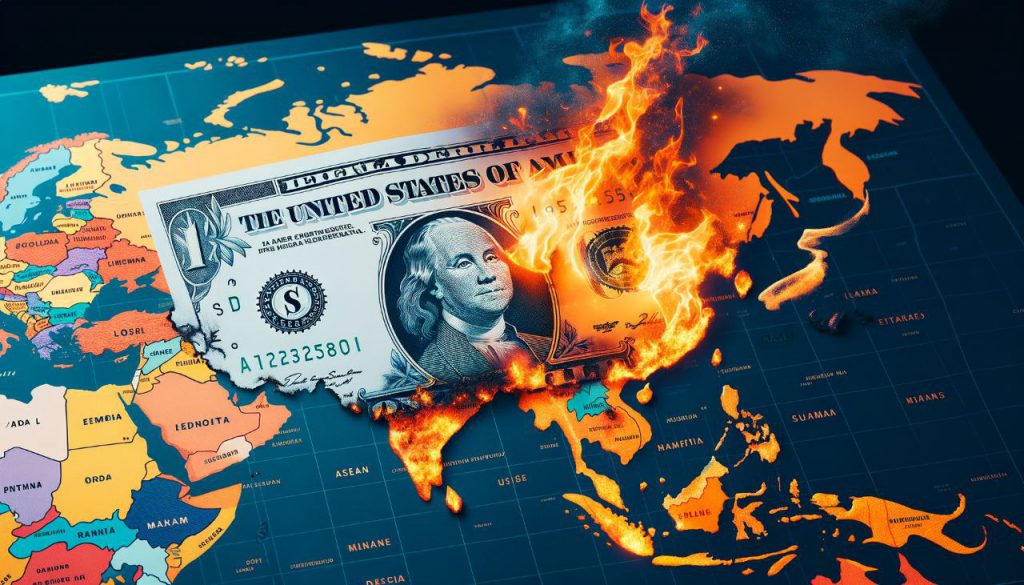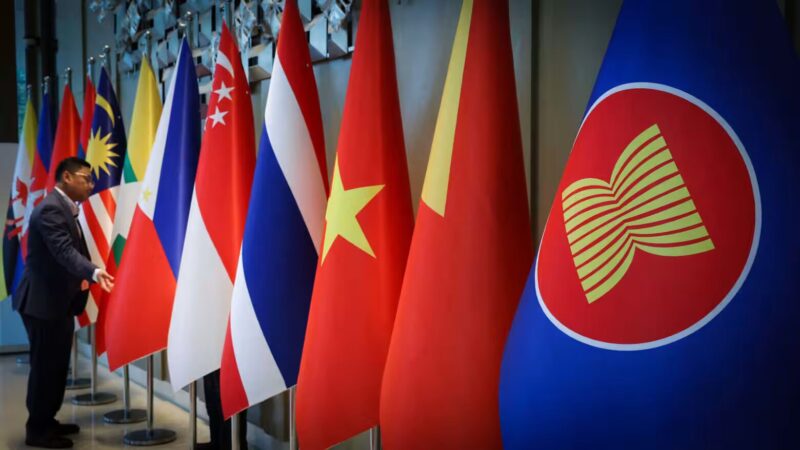De-dollarization is a new phenomenon that has been compelling nations lately to explore beyond the US dollar. As the US dollar decays, battered heavily with fierce Trump policies and agendas, major nations and alliances, including ASEAN, have now started to explore alternatives that help them stabilize their economy. In one such instance, ASEAN has now decided to deploy the route of diplomacy to embrace China over the US, as uncertainties spurred by US tariffs continue to loom on top of their heads. This news is, however, a damaging development for the US economy, as ASEAN trade with the US involves $3.8 trillion worth of exchange of money and services.
Also Read: De-Dollarization: Bank of America Reveals Why ASEAN Is Ditching USD
Two Ways ASEAN’s De-Dollarization Move Could Injure the US Economy
1. Reduced USD Demand


The ASEAN bloc has long been discussing ditching the US dollar. The plan was already in motion, as the block had discussed multiple times, to target the multipolar currency agenda. At the same time, ASEAN has always been quite vocal about how it wants to reduce its reliance on the US dollar. A new development spurred by Trump’s fierce tariffs has now shaken ASEAN’s trust, compelling them to explore trade relations with China to protect themselves from the stark US tariffs. In this wake, China and Indonesia have already signed a bilateral deal to trade in local currencies, reducing their dollar dependence in one go.
This move, however, can end up jeopardizing the US dollar’s stance, as it could reduce the global demand for the USD, hampering its further progress. The reduced demand would ultimately take a toll on the dollar, which has already shed nearly 10% of its value in recent times.
2. Declining US Economic Influence in the Region


Before the US dollar’s doom, ASEAN had strong economic ties with the United States. As Trump tariff hikes started to spread global mayhem, sparking trade war fears, ASEAN geared up to weather the change, pivoting towards China for help. If the US continues to deploy aggressive strategies, it will ultimately end up sabotaging the dollar’s supremacy in the region. This development may injure the US economy on a deeper level, reducing its influence in the global market.
Also Read: ASEAN Cybersecurity Vision Puts it on Collision Course With US & China by 2045





